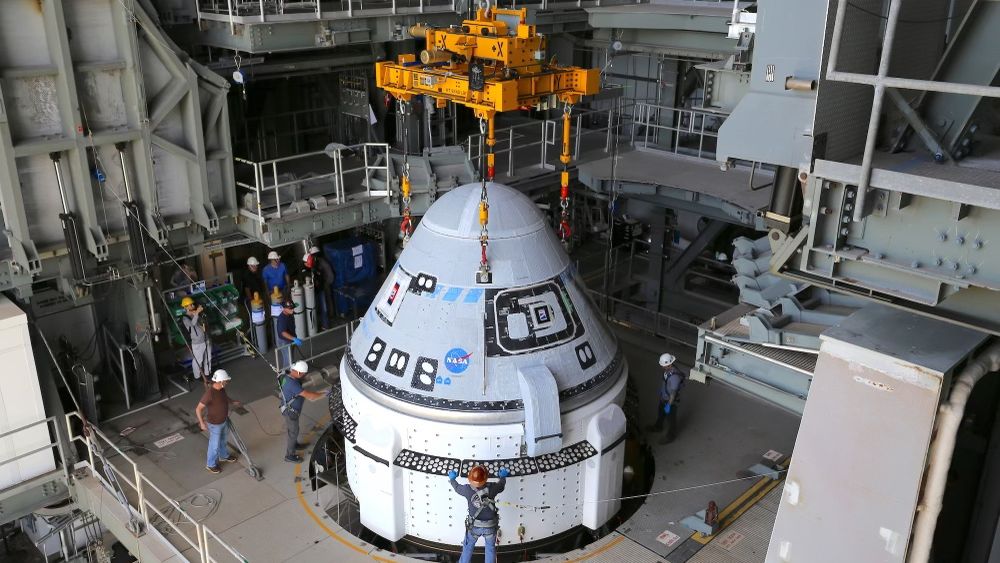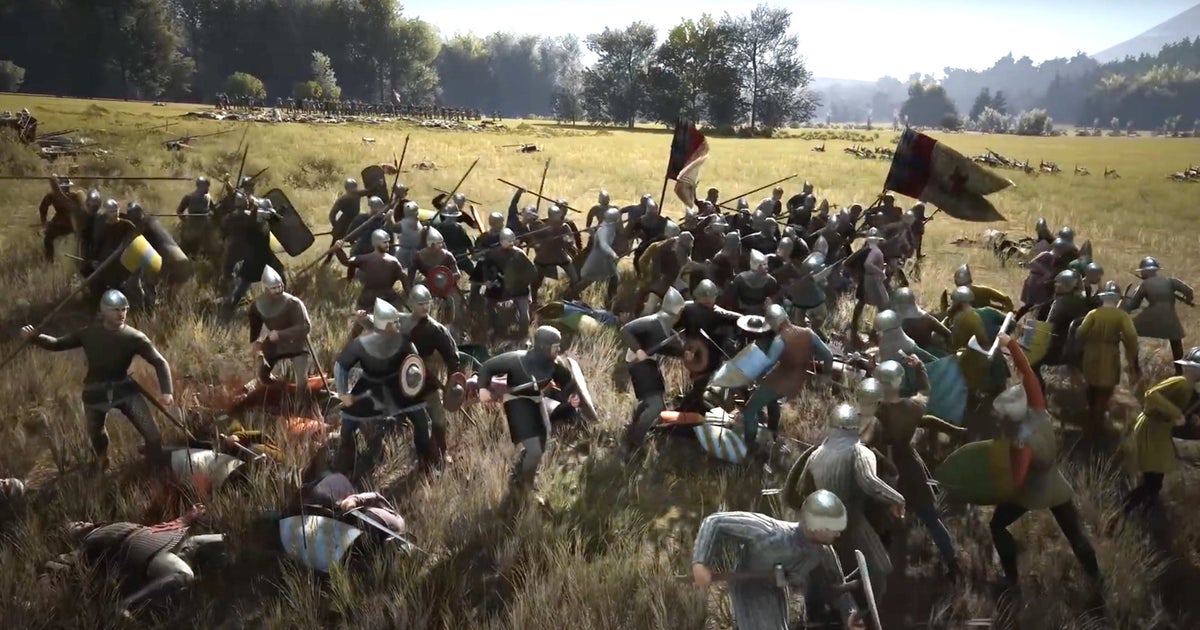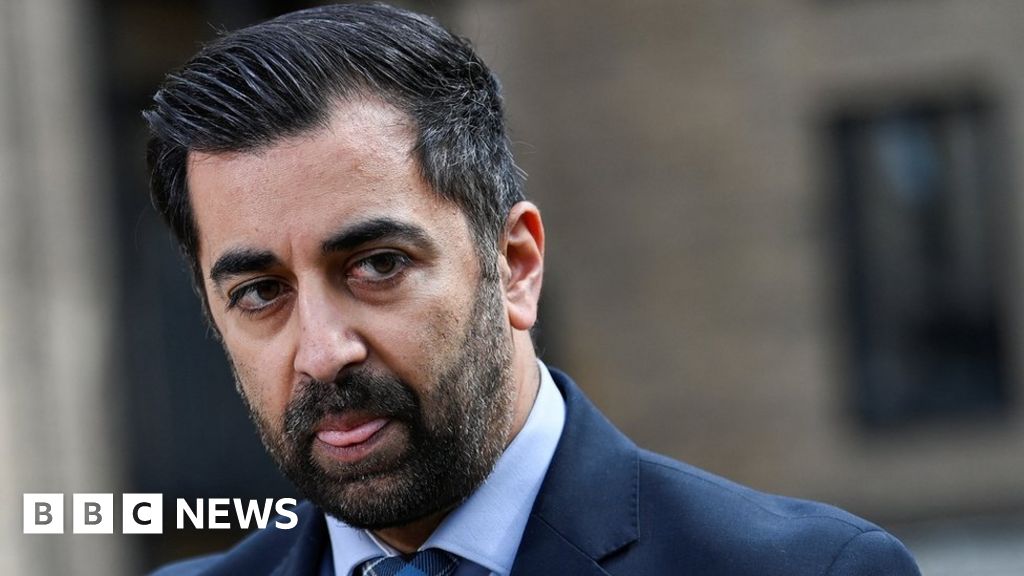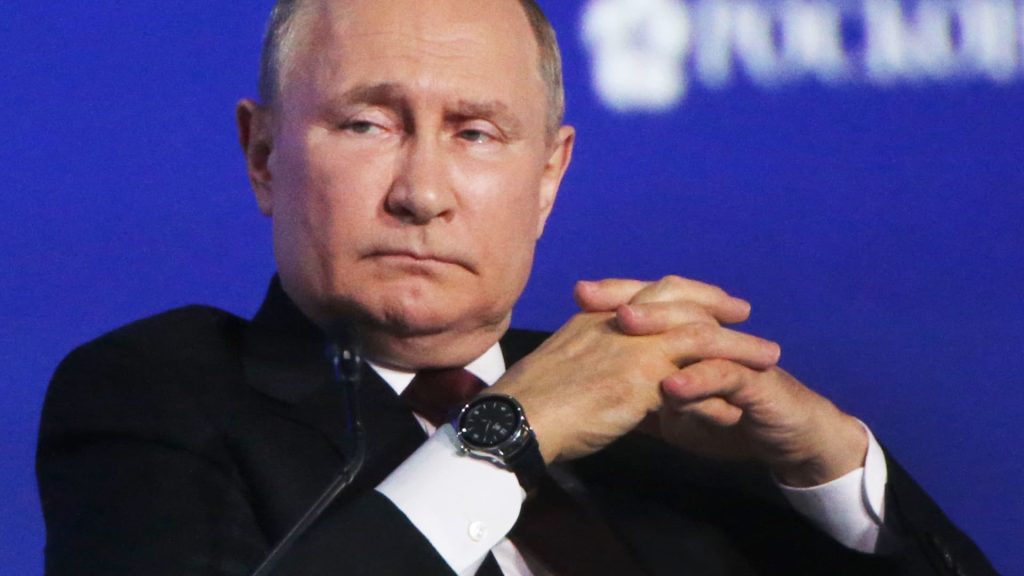Russian President Vladimir Putin in plenary during the SPIEF 2022 Saint Petersburg Economic Forum, on June 17, 2022 in Saint Petersburg, Russia.
Getty Images
Russian President Vladimir Putin has criticized the United States and the wider West, claiming on Tuesday that America wants to prolong the war in Ukraine.
“The situation in Ukraine shows that the United States is trying to prolong this conflict,” the official Russian news agency, Interfax, reported.
Putin also claimed that the United States was trying to maintain its dominant position in the world and that the West wanted to extend a defensive “bloc system”, like the military NATO, to Asia.
“We also see that the collective West is seeking to expand its bloc system to the Asia-Pacific region along the lines of NATO in Europe. For this purpose, aggressive military-political alliances are being formed, such as AUKUS and others,” Putin said. , referring to the Tripartite Security Agreement between Australia, the United Kingdom and the United States that was signed last year.
In addition, he said that US House Speaker Nancy Pelosi’s recent visit to Taiwan, which angered Russia’s ally China, was a “meticulously planned provocation,” saying that this “reckless” trip was “part of a purposeful and conscious strategy of the United States to destabilize and stabilize the the situation in the region and the world” and “a shameless display of disrespect for the sovereignty of other countries and their international obligations.”
Putin once again defended Moscow’s unjustified invasion of Ukraine, claiming that it was being carried out “to ensure the security of Russia and our citizens.”
Russia claims that its attack on Ukraine, which it calls a “special military operation,” is aimed at “liberating” the pro-Russian separatist areas of Donbass in eastern Ukraine it has supported since 2014.
Russia’s recent full-scale invasion of Ukraine has caused widespread destruction, death, and displacement among the country’s civilian population. On Monday, the United Nations said at least 5,500 civilians had been killed In combat though, the true figure is likely to be much higher, given the chaotic nature of recording such data in times of war.
The Russian invasion also sparked international condemnation and a wide range of economic sanctions on key sectors, companies and individuals associated with the Kremlin in the country.
The Russian leader’s obsession with Ukraine is long-standing and he has repeatedly praised the unity of Russians and Ukrainians, while simultaneously denouncing the country’s pro-Western government under President Volodymyr Zelensky.
Political analysts told CNBC that Putin’s allegations Addressed to the Ukrainian government is nonsense, reflecting an irrational attitude and miscalculation towards the leadership in Kyiv and its direction. Western officials and close followers of Russia also see Putin’s comments and his version (and often a revisionist view of history) as an attempt to create false and misleading narratives.
The United States and its European NATO allies have sought to help Ukraine defend its territorial sovereignty with the help of weapons, financial and humanitarian aid, saying that Russia should not be allowed to succeed in its seizure of Ukraine’s territory.
Russia said the West’s aid to Ukraine was the culmination of years of anti-Russian sentiment, and blamed NATO for starting the war.
Europe’s security system
The run-up to the war in Ukraine began in late 2021 when Russia massed more than 100,000 troops on the border with its smaller neighbour, insisting that it had no plans for invasion.
Russia demanded assurances from NATO in December 2021 that Ukraine would not be allowed to join the military alliance in the future (although there were no concrete plans for it to do so) and demanded that NATO roll back its military presence in Eastern Europe. It also sought guarantees that the military alliance would not expand further toward Russia’s borders, again, although there was no prospect of expansion—at the time.
NATO officials said there was room for negotiation, but rejected Russia’s main demands, and on February 24, Russia launched a large-scale invasion, widely seen as being believed to be able to achieve a quick victory in Ukraine and overthrow its pro-Western government.
Nearly six months later and the war shows no signs of ending anytime soon, with Ukrainian forces backed by heavy weaponry from the West—notably US-donated HIMARS or High Mobility Missile Systems making a tangible difference in the direction of the war. .
The invasion had other tragic, unintended consequences for Moscow as NATO united more forcefully than ever. European defense spending laggards, such as Germany, have also pledged to increase such purchases in direct response to Russian aggression.
Moreover, the traditional non-aligned nations Sweden and Finland have now applied to join NATO, nearly doubling the land borders that Russia shares with NATO countries. unsurprisingly, Moscow has condemned the expansion and threatened retaliation, without publicly disclosing what form it might take.
Despite its invasion of Ukraine, Russia blamed the West for changing Europe’s security architecture, and on Tuesday, Putin said in his speech that “the so-called collective West is intentionally destroying the European security system, forming new military alliances.”
“The NATO bloc is moving east, building its military infrastructure, including deploying missile defense systems and increasing the offensive capabilities of the offensive forces,” he said.
“In words, it was hypocritical that this was a need to strengthen security in Europe, but in reality, the exact opposite is happening,” he said. “The proposals made by Russia in December last year on mutual security measures were again ignored,” he added.
Timothy Ash, chief emerging markets strategist at BlueBay Asset Management, dismissed Putin’s comments in emailed comments on Tuesday, saying there are several instances of Russia seeking to destabilize the European security system, from sponsoring unrest in former Soviet republics like Georgia and Moldova to its interference in The Syrian Civil War and the Use of Biological Weapons Against Critics of the Kremlin.
“Russia intervened in the Syrian civil war with the specific intention of creating a wave of refugees into Europe to destabilize the continent. Putin supports the far left and the far right in Europe. Russia is now restricting energy supplies to Europe to create energy shortages and social and political unrest. But he said the West is deliberately undermining European security.” “.

“Beer buff. Devoted pop culture scholar. Coffee ninja. Evil zombie fan. Organizer.”







More Stories
Hamza Yousaf will not resign from the position of First Minister of Scotland
Talks between the United States and China begin with warnings about misunderstanding and miscalculation
Middle East Crisis: The United States and 17 other countries call on Hamas to release the hostages